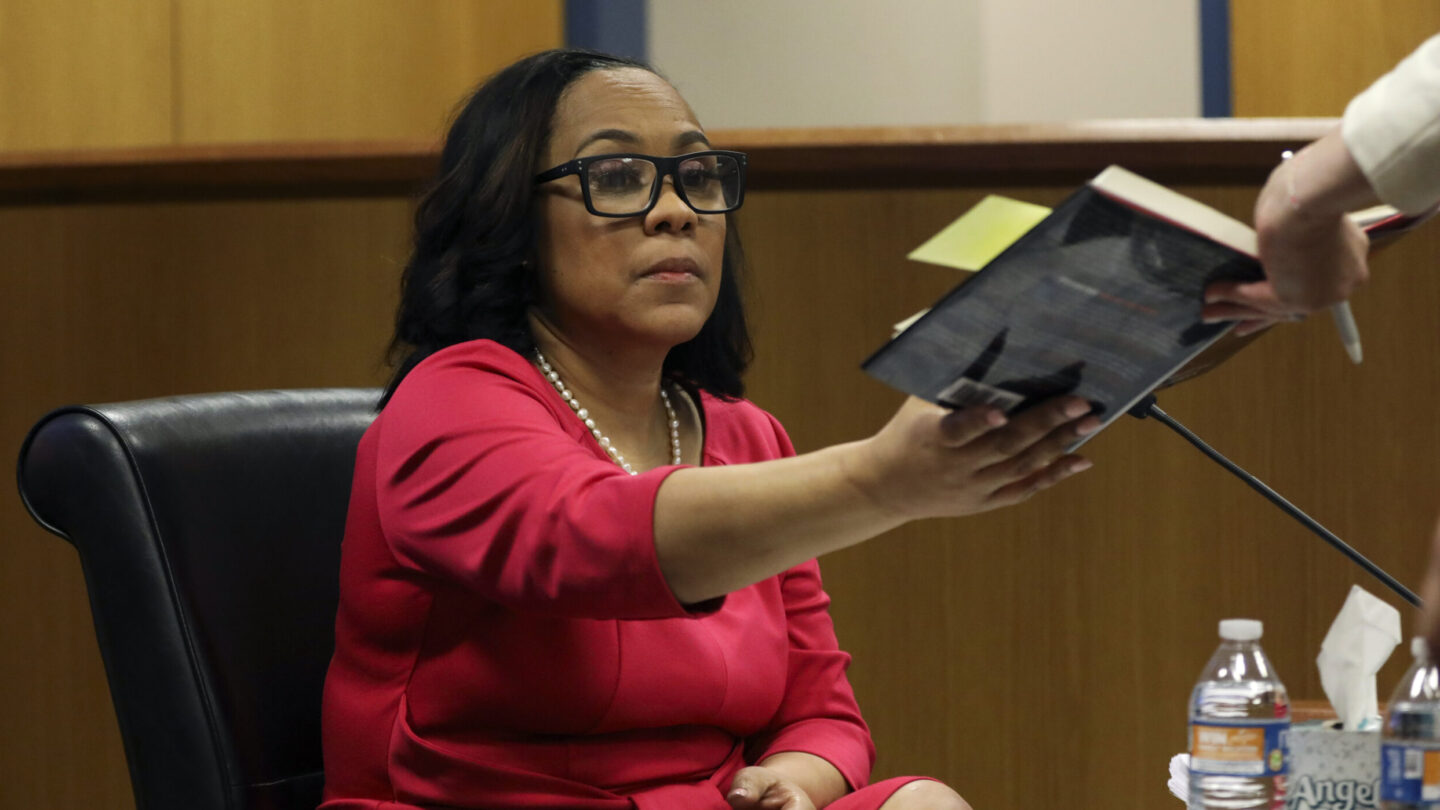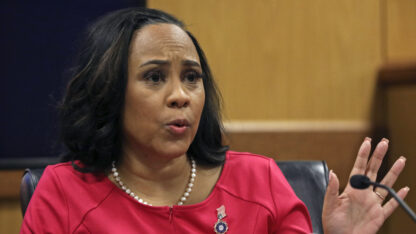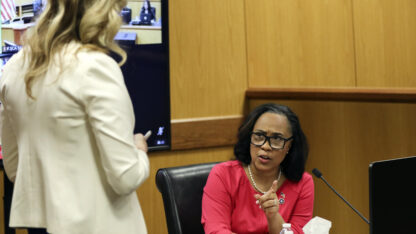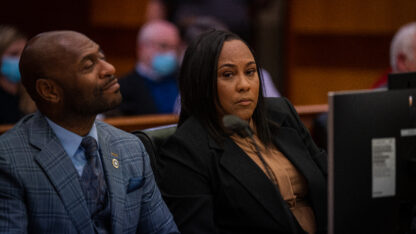In testimony that seesawed between the tedious and dramatic, Fulton County District Attorney Fani Willis took the stand in an Atlanta courtroom Thursday to defend her ability to continue helming the Georgia election interference case.
That’s after multiple defendants, including former President Donald Trump, moved to disqualify Willis from prosecuting them because of a romantic relationship she had with a special prosecutor she hired for the probe.
As lawyers sparred over whether Willis should be forced to answer questions, Willis appeared in the courtroom and declared her intention to testify. She called the motions to disqualify her “contrary to democracy.”
“You’re confused,” Willis said in an exchange with defense attorney Ashleigh Merchant. “You think I’m on trial. These people are on trial for trying to steal an election in 2020. I’m not on trial, no matter how hard you try to put me on trial.”
Multiple times defense counsel implied Willis and Wade were being untruthful. Willis outright accused the other side of lying – at one point, causing Fulton Superior Judge Scott McAfee to order the court momentarily in recess.
The substance of the election case – in which 19 people were indicted for allegedly trying to overturn the 2020 election result in Georgia – did not come up over the course of hours of the day-long testimony from Willis and others.
Much of the hearing focused on a key question: when did Willis and Wade’s relationship start?
A former friend of Willis told McAfee that Willis’ relationship with Wade began in 2019, well before Willis hired Wade to help with the Georgia election case and earlier than Wade acknowledged in an affidavit.
Robin Yeartie, who also worked for the DA’s office and has not spoken with Willis since Yeartie resigned in 2022, said she had “no doubt” Willis began a romantic relationship with Wade in 2019. She said Willis told her about it and she witnessed them in social settings hugging and kissing.
That conflicts with Wade and Willis’s account of the timeline. They maintained they didn’t start dating until 2022. Wade told the judge during his testimony that he had cancer during the pandemic and barely left his house.
Both said the romantic relationship ended last summer, but they remain close friends.
Defense counsel also honed in on Willis and Wade’s personal travel expenses as they tried to show that Willis has a financial stake in the outcome of the prosecution – and grounds to be disqualified for a conflict of interest. The defendants argue that the longer the case goes on, the more money Wade makes to fund their vacation travel.
Wade said Willis reimbursed him for travel expenses in cash – and her insistence on paying her own way sometimes became a point of contention in their relationship. Lawyers for the defendants pressed Willis and Wade about the cash reimbursements, expressing skepticism, given Wade could not produce any evidence, like bank deposits, to back up the claim.
Defense counsel also scrutinized Wade’s invoices, while prosecutors pointed out that Wade’s income took a hit when he began working on the election case.
The evidentiary hearing continues Friday with more witnesses expected to take the stand.
Judge McAfee will then need to weigh the evidence and Georgia case law to determine what to do next. If he opts to disqualify the district attorney – the entire office would be removed from the case, and the Prosecuting Attorneys Council of Georgia would need to appoint a special prosecutor. That could take time.
If McAfee rules there is no disqualifying conflict, appeals could potentially delay the case still.
And with the federal election interference case likely pushing into the late summer, the window for bringing the remaining 14 co-defendants to trial over their alleged roles in undermining the 2020 election result is already narrow.









